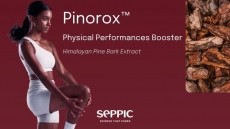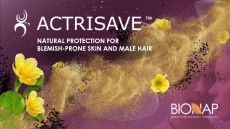Pterostilbene intake may cut body fat and reduce obesity: Animal data

The study, published in the Journal of the Agricultural and Food Chemistry, investigated whether the intake of pterostilbene - a molecule similar to resveratrol – impacted body fat and obesity in rats after previous research suggested that phenolic compounds including resveratrol can help to fight fat.
Led by Saioa Gómez-Zorita from the University of the Basque Country, Spain, the authors said the research is the first pre-clinical piece of work that analyses the effects of the phenolic compound on obesity in an animal model – finding that in a rat model of obesity pterostilbene slashed levels of body fat.
“Pterostilbene shows antiobesity properties due, at least in part, to reduced lipogenesis in adipose tissue and increased fatty acid oxidation in liver,” wrote the team.
These promising results, which have resulted in a patent, could be the starting point for conducting future studies on intervention in humans and designed to confirm this anti-obesity effect, said the team.
Obesity and pterostilbene
The team noted that while traditional guidelines for preventing and reversing obesity include following a low-calorie diet and doing moderate physical activity over the long term, the effectiveness of these strategies is limited and the success achieved is not always the desired one.
In this context, including functional ingredients in the diet has opened up new perspectives, including the potential for phenolic compounds to fight fat, they said – noting that pterostilbene is present in small amounts in a whole range of foods and beverages like grapes, blueberries, peanuts and red wine and widely consumed by humans.
Study details
The study aimed to examine the effects of pterostilbene in rats fed an obesogenic diet.
For this purpose, pterostilbene was given at doses of 15 mg/kg body weight/day (PT15 group) or 30 mg/kg body weight/day (PT30 group) for six weeks.
Gómez-Zorita and her colleagues reported that pterostilbene reduced adipose tissue mass by an average of 15.1% for the PT15 group and 22.9% for the PT30 group.
The phenolic compound was also significantly associated with decreased malic enzyme (−39.4 and −49.5% for PT15 and PT30 groups, respectively) and fatty acid synthase (−45 and −53.4% for PT15 and PT30) activities.
“In the liver, pterostilbene (PT30) reduced malic enzyme (−29.5%) and glucose-6-P dehydrogenase (−43.2%) activities and increased carnitine palmitoyltransferase-1a (37.5%) and acyl-coenzyme A oxidase (42.5%) activities,” wrote the team – noting that the increased oxidative capacity was not associated with increased mitochondriogenesis.
The team noted that the amounts of pterostilbene in serum and tissues from rats in the PT30 group were in not all cases 2-fold greater than those found in the PT15 group. In addition they noted that no dose-dependent effects could be confirmed.
Source: Journal of the Agricultural and Food Chemistry
Volume 62, Issue 33, Pages 8371–8378, doi: 10.1021/jf501318b
"Pterostilbene, a Dimethyl Ether Derivative of Resveratrol, Reduces Fat Accumulation in Rats Fed an Obesogenic Diet"
Authors: Saioa Gómez-Zorita et al
















